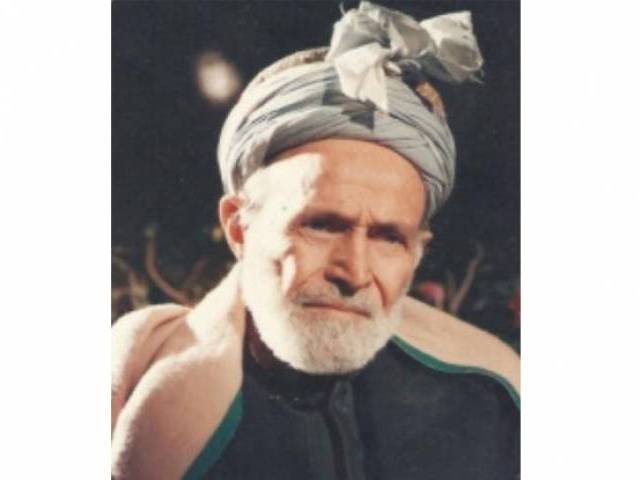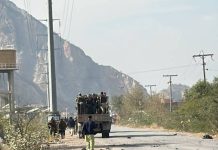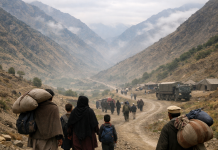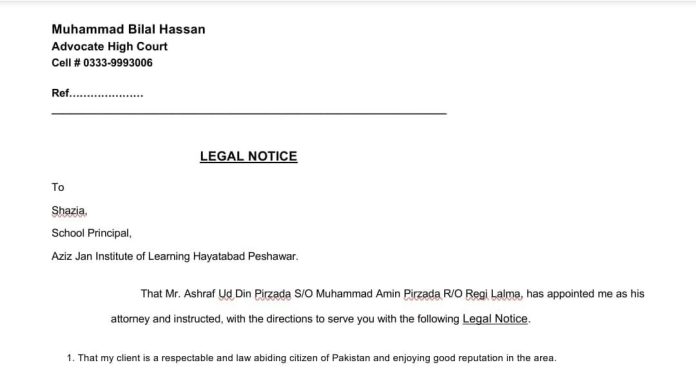Haroon Shinwari
JIRGA of the centuries-old and time-tested institutions of Pakhtun culture is Jirga. It is a unique forum in Pashtuns in which traditionally tribal elders come together to settle the affairs of their nation or rally on a cause. The phrase Jirga means “council.” Traditionally and historically, his instrument of Jirga has been used effectively by Pashtuns to settle inter-tribal and intertribal disputes as well as other related social issues. If one happens to visit a Pukhtun locality, one can see elders of different tribes, wearing turbans, with long heated debates, one found busy settling particular disputes among the tribes or between the local tribesmen.
Jirga covers almost all issues under the sun. The idea of the Jirga is very close to the Islamic injunctions as there is the concept of “Shura” (consultative assembly) in Islam. The concept of Jirga is very democratic, where all the concerned parties are given full freedom to express their viewpoints. No one can deprive others of his point of view. Secondly, the element of representation, the hallmark of a democratic setup, is also an important feature of a Jirga. The Jirga is usually held in public places like the courtyard of a village, Hujra or in a large hall in an elder’s house. In this unique institution of Pakhtuns, justice is dispensed with keeping in mind the traditional unwritten rules of the game, which are a socially binding force to socially accepted norms. These covenants cannot be challenged by any Pashtuns. They have a sound and unflinching belief in the social order of the Pukhtun society. Although social tribal rules enjoy a commanding authority, they also have peculiar, flexible elements, adapting to the changing environment and needs of the day. The most famous grand Jirga took place in Afghanistan in 1747, when Pashtun tribal chiefs met in the southern city of Kandahar to elect a king. That was Ahmad Shah Durrani, the man who founded the state of Afghanistan. Hamza Baba is a strong believer in this unique institution of Pakhtuns. Time and again, he has referred to it in his poetry. He loved the system and wanted to solve all disputes through it. In one of his couplets, he says;
سو چہ راغونڈ پہ یو مرکز اے نہ کڑم
ہرے تپی تہ دہ جرگوں سرہ زم
Until and unless I unite them with one another
I would go to every sect with Jirga
Hamza Baba loved the unity of Pakhtuns and wanted them to get united by any means. The most feasible and most useful source of unity to him was the Jirga. Here, he says that till the unification of Pakhtuns, he would continue visiting scattered Pakhtun localities and meeting different personalities for the cause and unity of Pakhtuns. This was his great service, which will be remembered forever. This couplet is full of such emotions for unity and shows his undisputed and unwavering faith in Jirga. He knows that Pukhtun is such a nation which cannot be subdued by force. They would bow their heads only and only in front of a Jirga. If the aim is to unite them, it is only feasible through the institution of a Jirga.
Khushal Khan Khattak, the classical poet and soldier of the Pakhtuns, also did the same, although at times he had to fight. He made the best use of Jirga for the unity of Pakhtuns by making tours of the whole of Pakhtunkhwa, urging them to shut their petty disputes and unite against the common enemy. Hamza Baba has even gone a step ahead. He has given a new meaning to Jirga in his following verse.
دہ دے پختوں نا اے جاریگہ حمزہ
لہ کورہ تختی چہ جرگہ جوڑہ شی
Hamza I love this pukhto,
The party for which the Jirga is formed leaves home
When Jirga is formed.
This is very special and novel, a new version of the Pakhtunwali (Pakhtun code of life). Generally, pakhtun honour the Jirga and are reluctant to refuse the decision of the Jirga. Even murderers have been pardoned when the Jirga has appealed to them. This is to say that in Pukhtun society, when someone has been killed unintentionally or due to some other reason, a Jirga consisting of elders of the murderer’s tribe goes to the deceased’s abode and requests pardon. The deceased family usually honours it as it is viewed as a sign of Pakhtunwali to say yes to Jirga. Their pakhtoo does not allow them to refuse Jirga as they have entered their threshold and in a way begging for mercy. Pakhtun character cannot afford to send them empty-handed. They grant pardon to the culprit and thus honour the visiting elders. It is something great and ultimate for the culprit and thus honours the visiting elders. It is something great and ultimate. What else can be given of the Pakhtun nobility?
Hamza Baba is looking for the same. As his beloved is a Pakhtun, who does not want to face the Jirga, hence leaves here abode whenever Hamza baba forms a Jirga to send. Hamza Baba is not disappointed or angry. He even loves this act of his beloved that is following the footprint of her forefathers of not refusing Jirga. She knows that before the Jirga, she will be left with no other way out but to accept. To avoid this, she has to avoid Jirga, and this is the reason why she leaves home. Does a question arise as to why Hamza Baba himself is not going to her place? Why is he seeking the help of Jirga? Here, Hamza Baba explained his point beautifully. He says;
حمزہ ورتلہ مہ دہ پختوں دی خلاف
زڑہ خو مہ غواڑی خو ورتلے نہ شم
O Hamza, my visiting her is against pukhto,
Although my heart is calling for it but I could not
It’s against his dignity as a proud Pakhtun to go to the house of his beloved and beg. His paktun wali is restraining him from visiting her, although he loves to see her. This is strange, but this is how Pakhtuns are. They won’t like to visit the place and the person who brings damage to the Pakhtunwali. They keep it in high esteem. On the point of Pakhtunwali, they will never compromise even if they suffer for it. Hamza Baba is suffering but is helpless. He cannot go there. He cannot cross the barriers. This is not to say that he is afraid of anything. He is ready to make any sacrifice for her beloved. He can go to any extent provided that it does not bring any harm to Pakhtunwali.
Looking at it from another angle, this is to say that the parties involved in disputes are usually reluctant to initiate the peace process themselves, as such bad blood had been created at the time. Somebody from the neutral side is needed to initiate and convince them to sit at the negotiation table. In the Tirah valley of Khyber and Orakzai, the institution of Jirga has done a remarkable job by announcing a complete cease-fire every Friday. Through a temporary cease-fire on Friday, the Jirga has provided the warring parties with a golden chance for a permanent cease-fire in future. They have prepared the soil for sowing the seeds of peace for the future, as the warring parties are made to see one another on Friday; they can also bear to see each other every day. This opportunity for interaction between warring groups on Friday is of great importance for making ultimate peace in the valley.
اے خلقہ پہ پختون اشنا مہ دہ نہ او گومان
جرگے دہ نیمے لارے راستنے شوے زہ چہ زو
O, People… This was not in accordance with the Character of my Pukhtun beloved,
The Jirga has returned from the midway.
Here, Hamza Baba has expressed his grief and disappointment over this un-Pakhtun-like act. A Jirga always consists of notables and elders who are respected and honoured in Pashtun society. This act of refusing to Jirga has infuriated him and compelled him to condemn it. Taking it as an insult to the very institution, he has tried to uphold the centuries-old tradition of Jirga and has appealed to the Pukhtun society not to undermine this social institution.
حیران یم اشنا راتہ جرگے دی چہ رازی
ماتہ بوگناواکے وسووسے دی چہ رازی
Jarge are coming to me and I am at loss
Apprehensions are frightening!
In the above stanza, Hamza Baba has expressed his worries as the Jirga is coming to see him. He would be facing the Jirga with all their calculated and weighted questions and queries. He has to prepare his case well, as he would not be in a position to defend himself. Normally, a Jirga is sent by one of the belligerent parties to the other with a message to sit for table talks and negotiate the matter. Every single word uttered before a Jirga is tantamount to a statement given in a court of law. Once said something before Jirga can’t be taken back as it would badly damage one’s credibility and standing among their fellow Pakhtuns. This burden of fear that he may not err before the Jirga is stressing him hard. He has to think and rethink the whole affair from every possible angle so that he comes out of it successfully.
Here, he has highlighted the importance and the coercive force attached to a Jirga. Although on one hand, Jirga is the best and easiest medium for resolving disputes, on the other hand, facing a Jirga is a very cumbersome and nerve-pricking affair. Jirga, a battle of nerves, is always fought and won by the men of strong nerves.
دہ خپلوں اوخکوں پختوں سرہ زم
خکلی اشنا تہ دہ جرگوں سرہ زم
I am going with my tears and sights
I am going to be loved with Jirga.
This time Hamza Baba has formed a Jirga comprising his tears and sighs. With these unique members of the Jirga, he is going to meet her. He is hopeful that this time she cannot refuse, as his Jirga members would convince her. Every belligerent party tries to get the toughest and most seasoned negotiators as his party tries to get the toughest and seasoned negotiators as his representative in the Jirga. Thus, Hamza Baba, to get a favourable decision, has nominated the most relevant members.
He has personified his tears and sighs as his representative. Now he seems confident that his members, having the strongest credibility, would be able to melt the stone-cold determination of his beloved. Tears and sighs, being the ultimate signs of true heartbreak, are being used as an instrument to win the heart of his beloved.
ذمہ او د رقیب خو بہ خود تیگہ ماتیدلہ
.بیگاہ چہ ٹولہ شپہ آشنا پہ سترگو کے ساتلم
My truce with my rival had to go when all night
My love had an eye on me.
Tigah (Stone) is an important component of Jirga. It is also called Kannre in some areas of Khyber Pakhtunkhwa, as a stone is called kanrre in their dialect. It is doing a remarkable job in the Pukhtun custom. Tigha can be simply explained as a temporary cease-fire between two or more warring parties. As a permanent solution to any issue requires sufficient time for discussion and debate, the elders of the Jirga initially go for Tigah (cease-fire).In Tigah, both warring parties are made to stop firing for a specified period. The length of the period varies from place to place and depends on the nature of the disputes.
The symbol of stone for this job might have been selected to show that the inhabitants of the land are as tough as stones in their decisions. No one can dare to break the Tigah (cease-fire) as a huge amount of penalty is usually imposed by the Jirga members on warring groups. Breaking Tigha damages the social status of a person as he is not trusted in future if he dares to break Tigha. The fine imposed is usually in the shape of guns. Hamza Baba has referred to the novel customs of the Pakhtun in the above couplet beautifully. He has warned his beloved and blamed her for being responsible for breaking Tigah with his rival, as she was continuously mending fences with him. Hamza Baba cannot bear this. He had to break the Tigah and initiate enmity with the Raqeeb (rival ) once again.
Hamza Baba has tried to highlight the peace-loving nature and social order prevalent in a Pukhtun society. A Jirga through Tigah (Ceasefire) makes a ceasefire and establishes the status quo for a reasonable time, and thus paves the way for resolving the issue amicably. The intervention of local elders in the strongest blood feuds eliminates hostilities and avoids bloodshed. Thus, the importance of Jirga is affected Tigah has multiplied its role effectively in Pakhtun society.
As a man would not be wrong to say that such a long existence of Pakhtuns on the surface of the earth is due to their effective customs like TIgah and Jirga.











